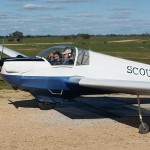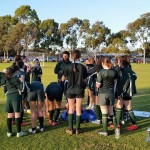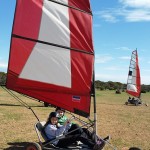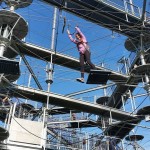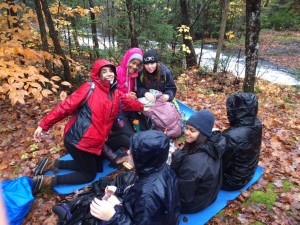 To complete the adventure aspect of our Duke of Edinburgh Silver Award this year, a few grade 10 students went camping at Camp Kanawana for four days on the weekend of October 21.
To complete the adventure aspect of our Duke of Edinburgh Silver Award this year, a few grade 10 students went camping at Camp Kanawana for four days on the weekend of October 21.
The first day was our practice journey where we adjusted to the camping grounds, played games and got to know Eric and Blaire, our two guides for the weekend. We had dinner at the Arts and Crafts Centre – the A&C as we called it – which was where we spent all of our evenings and ate most of our meals. While we were eating, I remember asking Blaire about how we were going to clean our bowls since most of us had only one to eat out of for the whole trip. She smiled and said that we would be using dirt. At first, I started to laugh, because I thought she was only joking, but after dinner we actually walked out in the rain and down to the lake to scrub our bowls with dirt and the cold lake water. This method of cleaning is known as dirt washing and was a part of our daily routine for the next few days. When we got back, we were allotted our cabins for the evening. The cabins were made out of wood and had just six bunk beds each; they were warm and provided us with a dry and cozy place to sleep and to keep our bags in while it was wet and cold outside.
The next morning, we had a nice breakfast and packed our lunch for our first hike when the actual journey began. It was still raining and we tumbled and slipped countless times, but all that mattered was our attitude. Despite the rain and cold, we had a great time and everyone remained cheerful and sanguine. After lunch, we were freezing, so Eric and Blaire taught us a two-person dance that warmed us up. By the end of the day, it had stopped raining but most of our shoes were soaking wet and we had literally fallen into rivers, gotten stuck in bogs, slipped on leaves and been smacked in the face by branches. We had originally planned to spend the night in tents, but due to the very wet and cold weather, we slept in cabins for another day. While we played games and roasted marshmallows around the warm fire at the A&C, it even started snowing a bit – just flurries, though, that melted as soon as they reached the ground.
The third morning was similar to the previous one. We ate breakfast and packed our lunch before departing. The hike that day was supposed to be tougher and longer than the previous day. For almost everyone, though, I think it was the better of the two. A bit before we stopped for lunch, the clouds parted, bathing the woods in the warm, golden light of the sun. The sky turned blue and the environment, along with our moods, became brighter and happier. Despite the cold, everything seemed prettier and grander. We stopped to have lunch at Camp Tamaracouta, another camp not far from Kanawana. When we returned, the sky was still clear and everything was much drier than it had been for the past two days, so the teachers and guides decided that we could sleep in tents for the night. We spent the next hour or so putting up our tents and getting ready for the evening. Some people slept very well that night, but several of us had a horrible night sleep, as it was cold and very windy. We spent the night restless in our tents and were happy when morning came.
The next morning, the last morning of our trip, was relatively fast-paced. We had a quick breakfast of oatmeal, bread and jam, started cleaning up our messes and left the camp as it was when we first got there. We loaded our supplies and bags back onto the bus and after one last game, said goodbye to Eric and Blaire.
This was, for me, an amazing experience and if I could I would definitely go on the trip again despite the hardships. Everyone on the trip bonded very well and we all worked together while having fun. I would recommend that all students of younger grades take part in the Duke of Edinburgh Award, not only for the award but also for the wonderful experiences.
– Anusha Shekhar ’18

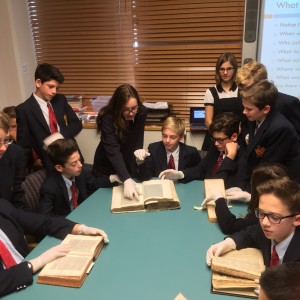
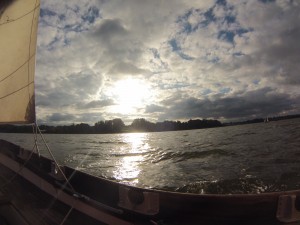
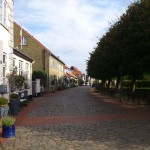
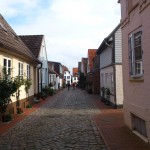
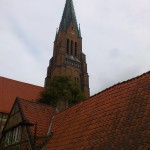
 De nos jours, le citoyen global est célébré. On aspire d’être des citoyens qui font du bénévolat et qui sont actifs dans leur propre communauté, et partout dans le monde. À LCC, nous avons la chance d’être une école qui fait partie du Round Square. Les IDEALS de Round Square ce sont les bases de nos traditions anciennes à LCC. Aujourd’hui, je vais vous parler de la lettre D dans l’acronyme IDEALS : la démocratie. Comme j’espère que vous saviez, Canada est un pays de fière démocratie. We embody the IDEALS of Round Square in our every day life. In Canada, we are lucky enough to be able to study what we want, speak about what’s on our mind, and freely take initiative in any way we like. What if we broaden our horizon, what if we look elsewhere. What will we find?
De nos jours, le citoyen global est célébré. On aspire d’être des citoyens qui font du bénévolat et qui sont actifs dans leur propre communauté, et partout dans le monde. À LCC, nous avons la chance d’être une école qui fait partie du Round Square. Les IDEALS de Round Square ce sont les bases de nos traditions anciennes à LCC. Aujourd’hui, je vais vous parler de la lettre D dans l’acronyme IDEALS : la démocratie. Comme j’espère que vous saviez, Canada est un pays de fière démocratie. We embody the IDEALS of Round Square in our every day life. In Canada, we are lucky enough to be able to study what we want, speak about what’s on our mind, and freely take initiative in any way we like. What if we broaden our horizon, what if we look elsewhere. What will we find?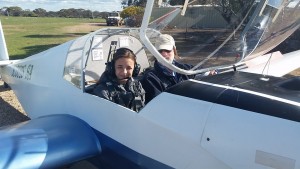 The past few weeks have been fun, doing things I never expected to do in a million years and challenging myself to push my comfort zone and make new friends.
The past few weeks have been fun, doing things I never expected to do in a million years and challenging myself to push my comfort zone and make new friends.